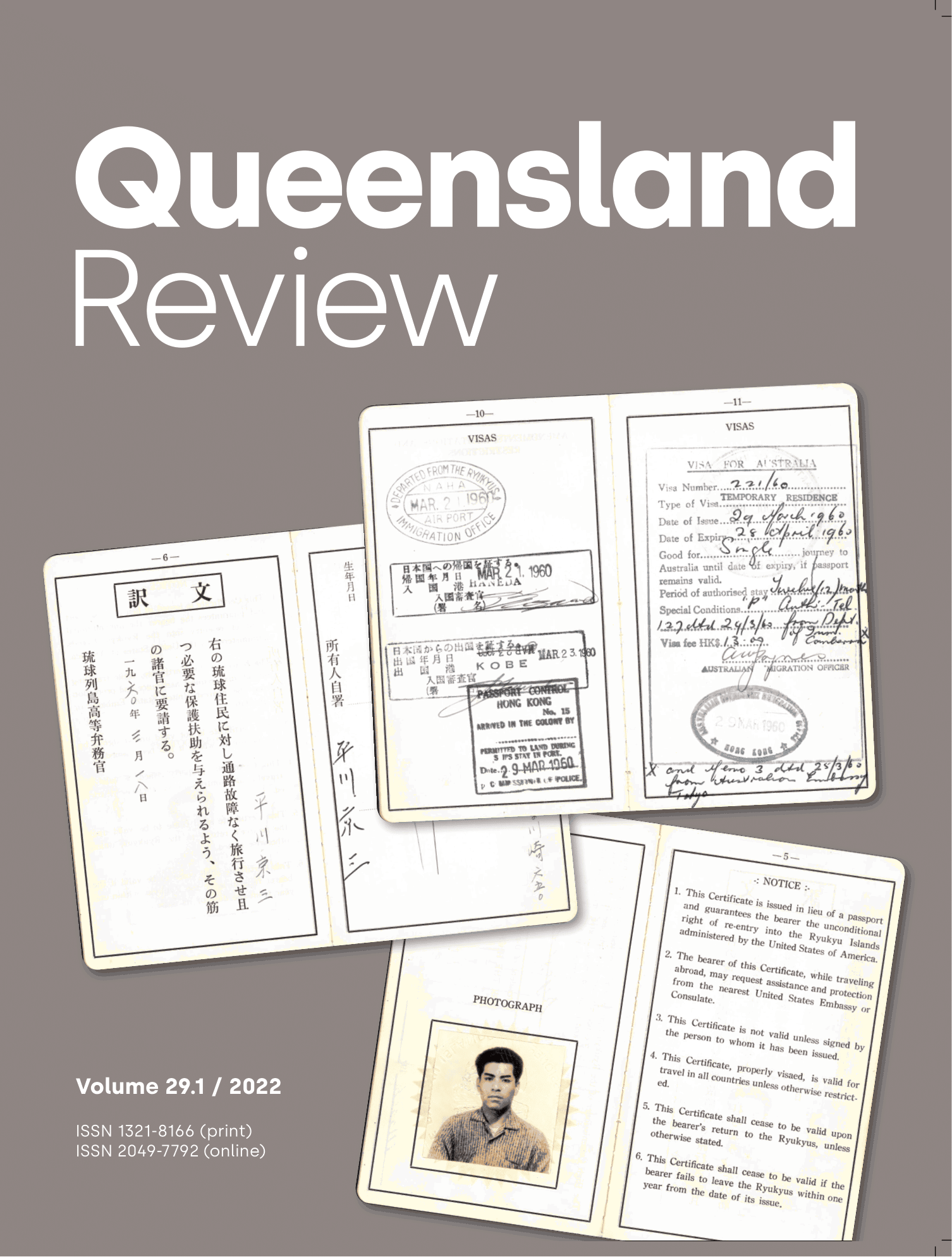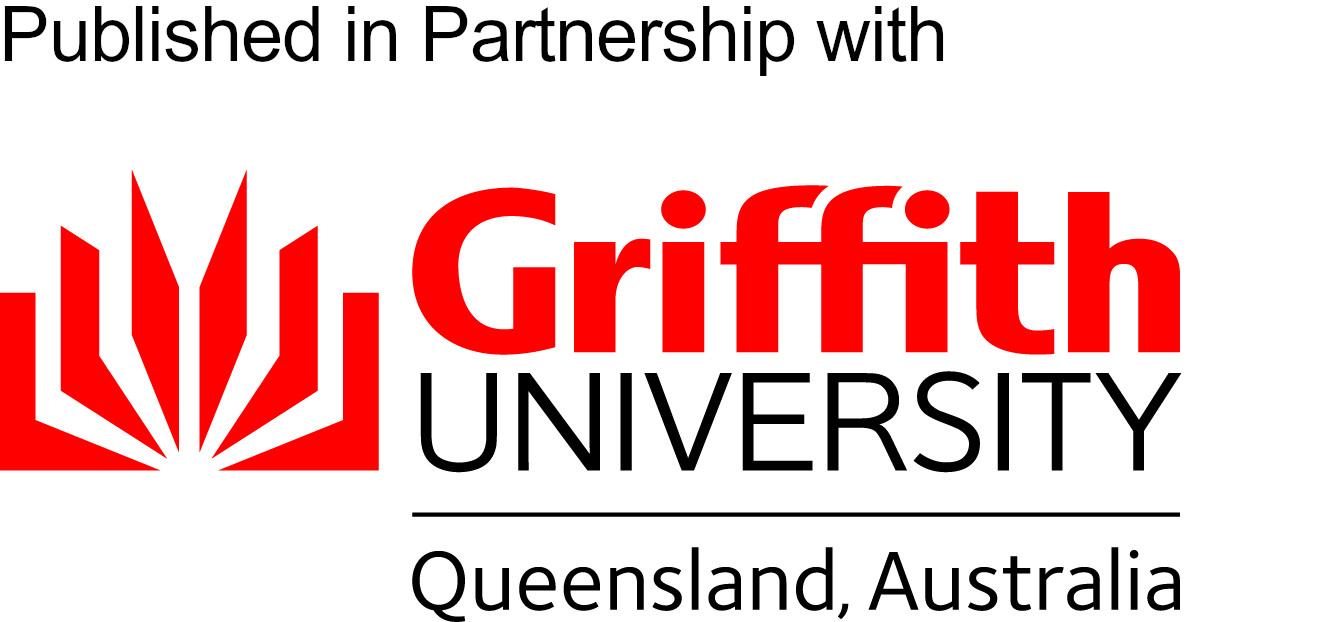Imperial and Indigenous perspectives on Queensland history
DOI:
https://doi.org/10.1558/qre.23429Keywords:
University of the Third Age (U3A), Queensland studies, Queensland history, Indigenous historical perspectives, Queensland politics, senior citizen educationAbstract
The University of the Third Age is an international organisation with a flourishing membership of Brisbane senior citizens. My wife, Ann, and I offered eight terms of African history and then took a ‘sabbatical’, teaching a one-year course in Queensland history. We were joined on the teaching team by Julie Ballangarry, currently nearing the end of her doctoral studies at Griffith University after teaching in a range of Queensland schools. She adds an Indigenous perspective to our own approach derived from life experience in diverse imperial settings and Queensland bureaucracies. Together, we offer reflections on the gaps and limitations of some of the current approaches to Queensland history.
References
Note 1. After completing her PhD on ‘The Ahern Committee and Education Policymaking in Queensland’ in 1985, Ann Scott worked for 20 years in the Queensland public service, including the Education Department, the Cabinet Office, the Public Sector Management Commission and the Queensland Police Service. Since retiring in 2004, she has authored two books, Ernest Gowers: Plain Words and Forgotten Deeds (Palgrave Macmillan, 2009) and (with Mervyn Eadie and Andrew Lees) William Richard Gowers: Exploring the Victorian Brain (Oxford University Press, 2012). She also served as Executive Editor to the T.J. Ryan Foundation.
Note 2. Julie Ballangarry is a proud Gumbaynggirr/Dunghutti woman who has a deep passion for Indigenous emancipation, reform and activism. Julie is a former teacher who is knowledgeable about Indigenous education issues and draws heavily from her own experiences, both professionally and personally. Julie’s strength is in her wisdom, upon which she draws from her ancestors, especially her father. It is evident that Julie has a unique way of viewing the world, by walking in two worlds, and is able to communicate this clearly with non-Indigenous peoples.
Note 3. The Centre had been jointly funded by the University and the Queensland Government Premier’s Department between 2003 and 2013. Under the direction of Professor Peter Spearritt, I took on the role of Program Director for ‘Queensland Speaks’. Other programs included ‘The Queensland Historical Atlas’, ‘Queensland Places’ and ‘Text Queensland’. The outputs from these projects continue to be supported and remain alive and well on the web. We anticipate that they will be much referred to as sources later in our course. John Ford and I constructed an e-book, also freely available on the website, which includes clips from the ‘Queensland Speaks’ interviews about the role of non-Labor parties after the end of the Bjelke-Petersen regime: Queensland Parties: The Right in Turmoil 1987–2007 (iBook, 2014).
Note 4. The ‘ring-ins’ included a Griffith staff member, two stalwarts of U3A, including the eminent president of the organisation, who has played national and international roles in the organisation, and a former public service colleague.
Note 5. In the concluding session in 2021, we discussed the relevance of location for Queensland history. Our ex-teacher/ex-bureaucrat class member used family history to focus on Toowoomba, including the role of German immigrants and their internment in World War I and anti-Irish feeling then and later. He also unearthed a remarkable YouTube video from 30 years ago which gave graphic media coverage of a local disturbance: state school parents protesting with pamphlets and street marches. They were concerned about the wickedness of merit selection, which had led to the replacement of their long-serving high school principal with Dr Ray Barratt. Minister Paul Braddy, newly installed by Wayne Goss, was the butt of their protests. The guilty parties were undoubtedly the newly arrived Director-General and the new-fangled personnel management system he was charged with implementing by the Queensland Teachers’ Union and others. Peace was finally restored when the former principal was installed by another selection panel as head of the equally new-fangled School Support Centre in nearby office accommodation.
Note 6. Raymond Evans, A history of Queensland (Melbourne: Cambridge University Press, 2007).
Note 7. Chris Salisbury, ‘A long revolution: The historical coverage of Queensland politics and government’ in Andrew Podger, Michael de Percy and Sam Vincent (eds), Politics, policy and public administration in theory and practice: Essays in honour of Professor John Wanna (Canberra: ANU Press, 2021). http://press-files.anu.edu.au/downloads/press/n8214/pdf/ch07.pdf
Note 8. The cartoon is reproduced in Volume 3 of the 10-volume Bicentennial History of Australia (Ringwood: Penguin, 1988), p. 393. This massive work is disappointingly shallow in its coverage of Queensland.






